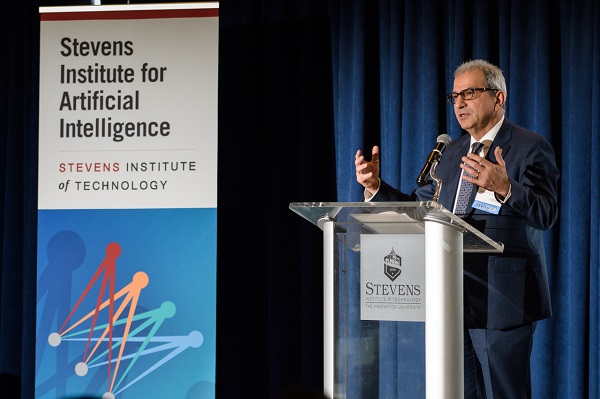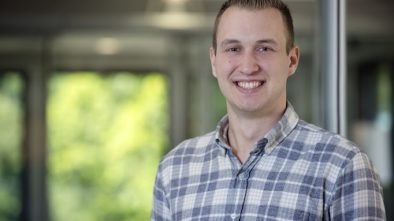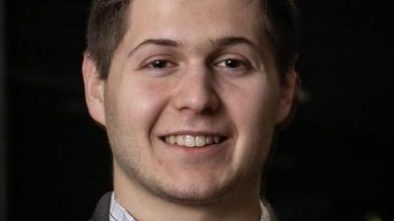Stevens Institute for AI Poised to Spur Research Collaboration and Industry Partnerships
In late November, Stevens Institute of Technology (Hoboken) celebrated the launch of its Stevens Institute for Artificial Intelligence (SIAI), with an expo of student and faculty work in this area and a roster of speakers discussing the importance of bringing all AI and machine learning research under one roof.
The university assembled an audience for this event that included key industry and government representatives from NASA, IBM, Pfizer and elsewhere.
As many computer scientists realize, AI and machine learning are the plumbing built into many new game-changing applications. At technology universities like Stevens, this means that basic research on AI and applications for AI are typically scattered across many departments. More than 50 faculty members at Stevens are involved in the study or teaching of AI and machine learning.
SIAI is a way for all practitioners who are involved in AI development in a diverse range of disciplines, such as healthcare and agriculture, to come together, collaborate or discuss their work. The organization will also act as a single point of interaction for companies that might want to use some of Stevens’ AI innovations or work with researchers.
Bringing Together AI Research, Development and Teaching
“SIAI is an interdisciplinary, technology-driven, collaborative enterprise which encompasses research, development and teaching programs,” said Christophe Pierre, Stevens provost and vice president for academic affairs.
As of this semester, Stevens has introduced several new
courses in AI and has recruited new faculty members, both in computer science
and in application areas like engineering, science, systems and enterprises, he
said.
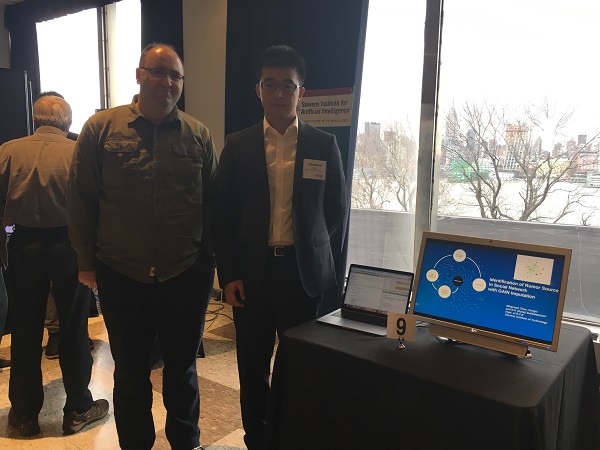
How diverse the applications for AI and machine learning are
was evident at the showcases viewed before and after event. One team was
applying AI to music, another to identifying fake voices, a third to how rumors
get started, a forth to wearable cardiovascular monitors, yet another to
fintech and so on.
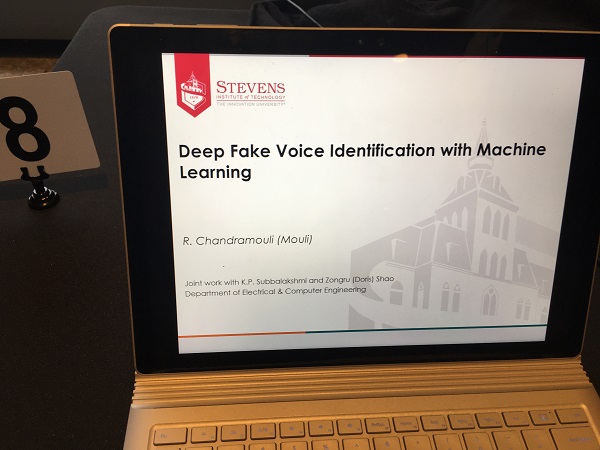
Speaking to the group, the president of Stevens, Nariman Farvardin, said that he is “an engineer and in many ways a geek, and I am personally passionate about artificial intelligence, to the point that, at age 62, and with the plethora of responsibilities that I have, I am currently taking an online course in machine learning.”
“This is just the beginning of a new industrial revolution.” Nariman Farvardin
The confluence of advances in three different fields – computing, data science and algorithms – has resulted in an explosive growth, incredible amount of success and the opening of new areas of research in AI, he said. “This is just the beginning of a new industrial revolution.”
Farvardin said that he believes Stevens’ research will give rise to new products, solutions, technologies and ventures that will change the way people live. For example, he said that he believes AI will result in the “smartest investment machines that are even smarter than Warren Buffet.”
He also said that the proximity of the university to Google, Facebook and now the new campus of Amazon gives Stevens a special opportunity to partner with these giants. “Industries with a strong presence in New Jersey such as pharma, healthcare, finance, telecom and energy” will also benefit from the work that will take place at SIAS, he said.
Expect Rapid changes
“Hold onto your seats because the changes will be very rapid and very, very dramatic,” Farvardin told the audience.
While Farvardin predicts that AI will create groundbreaking applications and fabulous careers, he has no doubt that it will also abolish jobs and create significant new socioeconomic challenges, eliminating the careers of “many financiers who work across the river,” many healthcare specialists and many paralegals.
“These machines don’t know how to form unions and they don’t
need the heavy cost of healthcare associated with them; and these jobs will be,
over time, eliminated.” The university needs to work on these social issues as well as on creating new
technologies, he said.
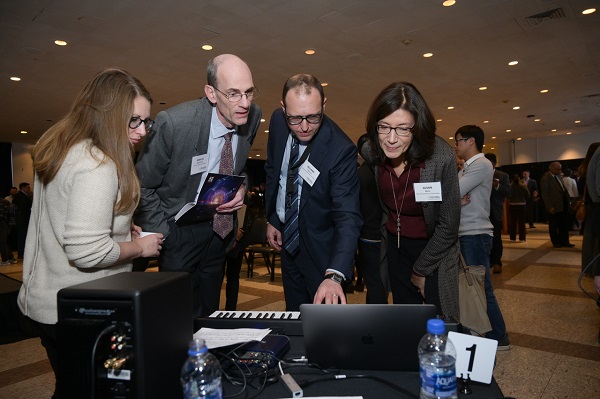
Hoboken Mayor Ravinder S. Bhalla congratulated Stevens on the establishment of the institute and noted that Hoboken likes to think of itself as ahead of the curve. “Hoboken itself is growing into a more technology-driven town. We’ve got businesses on the waterfront such as Jet.com, EY, Pearson, Thomson Reuters, Wiley and others. There are also tech-based startup companies, and Stevens has been no small part of that,” he added, citing the Stevens Venture Center, a tech incubator in the Pearson building.
SIAI’s founding director, K.P. “Suba” Subbalakshmi, said that institute will be focusing on nine specific areas of expertise in AI: art and music; cognitive networking and computing; cybersecurity; environment and energy; fintech; foundations of AI and machine learning; healthcare and biomed; robotics, perception and human machine interaction; and societal impact.
The gathering was meant to give people from industry and other universities who were working in or interested in AI a way to meet faculty and students at Stevens who are involved in the area, she said. SIAI is working on a program to help industry access talent in AI and to give industry a “front seat” on new research as it is happening.

